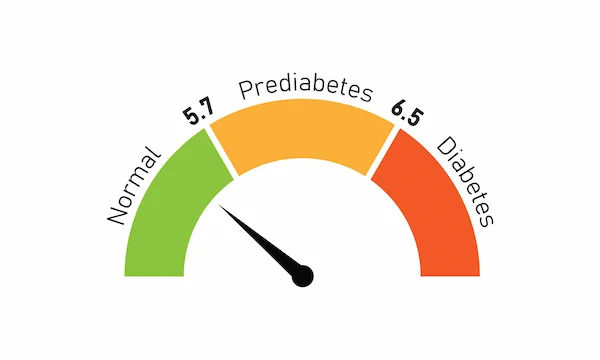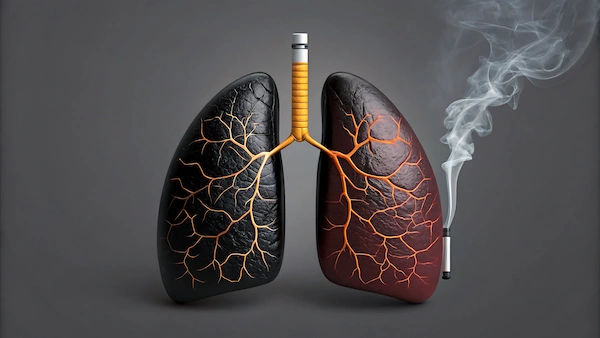Symptoms of Nipah Virus Explained
Learn about the symptoms of Nipah virus, from early warning signs to severe complications. Understand how to identify and respond to Nipah infections for timely medical intervention.

Written by Dr. Siri Nallapu
Reviewed by Dr. Dhankecha Mayank Dineshbhai MBBS
Last updated on 13th Jan, 2026

The Nipah virus is a rare but serious infection that can affect both animals and humans. It spreads through direct contact with infected animals (like bats or pigs) or through contaminated food. Human-to-human transmission is also possible, making it a concern in certain outbreaks.
If you or someone you know is experiencing symptoms related to the Nipah virus, it’s important to recognize them early and seek medical help. In this article, we’ll explain the common symptoms, how the virus spreads, and what you can do to stay safe.
What Are the Symptoms of Nipah Virus?
The symptoms of Nipah virus infection can range from mild to severe. They usually appear within 4 to 14 days after exposure to the virus. Some people may not show symptoms at all, while others can develop life-threatening complications.
Consult top Specialist
Early Symptoms (Mild to Moderate Cases)
Below are early symptoms in case of mild to moderate cases,
1. Fever – One of the first signs is a high fever, often accompanied by chills.
2. Headache – Severe headaches are common and may feel different from a regular tension headache.
3. Muscle Pain (Myalgia) – Body aches and weakness, similar to flu-like symptoms.
4. Sore Throat – Irritation or pain in the throat.
5. Vomiting & Nausea – Feeling sick to the stomach and throwing up.
These symptoms can be mistaken for the flu or dengue, so it’s important to monitor them closely, especially if you’ve been in an area with a Nipah outbreak.
Severe Symptoms (Advanced Infection)
If the infection worsens, it can affect the brain and respiratory system, leading to:
6. Dizziness & Confusion – Difficulty thinking clearly or feeling disoriented.
7. Drowsiness or Unconsciousness – Extreme fatigue or slipping into a coma.
8. Seizures – Uncontrolled shaking or convulsions.
9. Difficulty Breathing – Respiratory distress, similar to pneumonia.
10. Encephalitis (Brain Swelling) – This is a dangerous complication that can lead to long-term neurological damage or death.
In severe cases, Nipah virus can be fatal, with a high mortality rate (40-75%). Early detection and treatment are crucial for recovery.
How Does Nipah Virus Spread?
The Nipah virus spreads through:
- Direct contact with infected bats or pigs (common in farms or areas with bat populations).
- Eating fruits or drinking raw date palm sap contaminated by bat saliva or urine.
- Close contact with an infected person’s bodily fluids (saliva, blood, urine).
Outbreaks are more common in South and Southeast Asia, particularly in Bangladesh, India, and Malaysia.
What Should You Do If You Have Symptoms?
If you’re experiencing symptoms it’s important to act promptly and responsibly. Here's what you should do:
1. Seek Medical Help Immediately – If you experience fever, headache, or confusion after possible exposure, visit a doctor right away.
2. Isolate Yourself – Avoid close contact with others to prevent spreading the virus.
3. Stay Hydrated – Drink plenty of fluids to manage fever and weakness.
4. Follow Hospital Guidelines – Severe cases may require intensive care, including oxygen support.
How to Prevent Nipah Virus Infection?
Since there is no specific vaccine for Nipah virus, prevention is key:
- Avoid consuming raw date palm sap (it may be contaminated by bats).
- Wash fruits thoroughly before eating.
- Stay away from sick animals, especially pigs and bats.
- Practice good hygiene – Wash hands frequently with soap and water.
- Wear masks and gloves if caring for an infected person.
When to See a Doctor?
If you or a loved one develop sudden high fever, severe headache, confusion, or breathing difficulties, especially after visiting an outbreak area, consult a doctor immediately. Early treatment can improve survival chances.
Need Expert Advice?
If you suspect Nipah virus symptoms, don’t wait. Book a consultation with Apollo24|7 doctors for expert guidance and timely care.
Conclusion
Recognizing the symptoms of Nipah virus early such as fever, headache, dizziness, respiratory distress, or neurological signs is crucial for timely medical intervention. Given the severity and potential complications of the infection, immediate isolation and consultation with healthcare professionals are essential. Awareness, early diagnosis, and preventive measures can significantly reduce the risk of spread and improve outcomes. Stay informed and seek help promptly if you or someone around you shows symptoms.
Consult top Specialist
Consult top Specialist

Dr. Syed Ismail Ali
General Practitioner
7 Years • MBBS
Hyderabad
Apollo 24|7 Clinic, Hyderabad

Dr. Vivek D
General Physician
4 Years • MBBS
Bengaluru
PRESTIGE SHANTHINIKETAN - SOCIETY CLINIC, Bengaluru

Dr Syed Mateen Pasha
General Physician
2 Years • MBBS
Bengaluru
PRESTIGE SHANTHINIKETAN - SOCIETY CLINIC, Bengaluru

Dr. Srujana Mulakalapalli
General Physician/ Internal Medicine Specialist
5 Years • MBBS, MD (GENERAL MEDICINE)
Bengaluru
Apollo Medical Center, Marathahalli, Bengaluru
(25+ Patients)

Dr. Harshendra Jaiswal
General Physician/ Internal Medicine Specialist
12 Years • MBBS , MD (General medicine)
Kolkata
108 DHANA DHANVANTARI Clinic, Kolkata
(25+ Patients)
Consult top Specialist

Dr. Syed Ismail Ali
General Practitioner
7 Years • MBBS
Hyderabad
Apollo 24|7 Clinic, Hyderabad

Dr. Vivek D
General Physician
4 Years • MBBS
Bengaluru
PRESTIGE SHANTHINIKETAN - SOCIETY CLINIC, Bengaluru

Dr Syed Mateen Pasha
General Physician
2 Years • MBBS
Bengaluru
PRESTIGE SHANTHINIKETAN - SOCIETY CLINIC, Bengaluru

Dr. Srujana Mulakalapalli
General Physician/ Internal Medicine Specialist
5 Years • MBBS, MD (GENERAL MEDICINE)
Bengaluru
Apollo Medical Center, Marathahalli, Bengaluru
(25+ Patients)

Dr. Harshendra Jaiswal
General Physician/ Internal Medicine Specialist
12 Years • MBBS , MD (General medicine)
Kolkata
108 DHANA DHANVANTARI Clinic, Kolkata
(25+ Patients)




